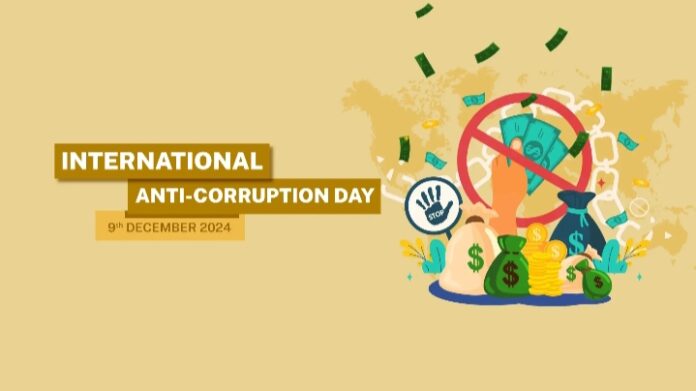Photo credit: Google: Positive.digital
By Marie-Therese Nanlong
Jos – The Media Rights Agenda, MRA has called on the youths in Nigeria to take advantage of technology and the Freedom of Information, FOI Act to tackle corruption, and demand accountability in governance.
MRA pointed out that transparency and accountability in governance are critical ways in which the youths can build for themselves the future they want.
A statement issued in commemoration of the 2024 International Anti-Corruption Day, IACD, with the theme:
“Uniting with Youth Against Corruption: Shaping Tomorrow’s Integrity,” Ayode Longe, MRA’s Deputy Executive Director, said the theme underscores the vital role in driving change, promoting transparency and accountability, and building a future rooted in integrity, and young people stand to lose the most from the devastation caused by unchecked corruption as their future is being completely stolen from them, leaving them hopeless and in despair.
He said, “As we come together today to reaffirm our collective commitment to combating corruption, a major challenge that continues to undermine national development, justice, and equality, we call on young people across Nigeria to unleash their boundless energy and creativity to transform our society for the better.
“You stand at the forefront of innovation, with the opportunity and capacity to leverage technology, social media, and the Freedom of Information Act to expose corruption, demand transparency and accountability in governance, advocate for fair opportunities for all, and work towards the emergence of a society that prioritizes equity over-exploitation.”
READ : Mutfwang celebrates Okonjo-Iweala’s reappointment as WTO DG
He also stressed that evidence shows that corruption steals resources, erodes trust in officials and institutions, deepens inequalities in the society, and is one of the greatest impediments to Nigeria’s development, perpetuating inequality, undermining public trust, and depriving citizens, especially young people, of opportunities for growth and prosperity.
Longe argued that young persons, who make up the largest demographic in Nigeria, have a responsibility as well as a unique opportunity to drive change by using the modern communication tools at their disposal and the FOI Act as powerful instruments to expose corruption and promote good governance.
“Young people have to educate themselves about the provisions of the FOI Act and their rights under the law; identify key government agencies that manage public resources and demand greater transparency and accountability from them; establish collaborative youth-led initiatives aimed at tracking government spending, monitoring projects, and reporting corruption; while working with journalists, civil society organizations, and legal experts to navigate challenges in accessing information.
“FOI Act empowers every person, including young people, to seek various types of information from government agencies, including information about resources allocated to various social services like education and youth development, how public funds are spent, how contracts are awarded and executed, and to verify the implementation of projects in their communities and expose discrepancies between what was promised and what was delivered; and much more.
“To truly empower the youths in the fight against corruption, the government must invest in their education, strengthen their participation in decision-making processes, and provide platforms where their ideas can thrive. Government officials and institutions, civil society organizations, the private sector, and other groups and individuals to play their respective roles in creating an environment where young people can act against corruption without fear,” he stressed.
















